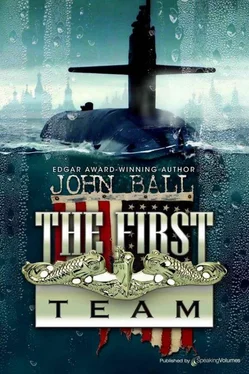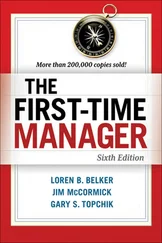Джон Болл - The First Team
Здесь есть возможность читать онлайн «Джон Болл - The First Team» весь текст электронной книги совершенно бесплатно (целиком полную версию без сокращений). В некоторых случаях можно слушать аудио, скачать через торрент в формате fb2 и присутствует краткое содержание. Год выпуска: 2013, Жанр: Триллер, на английском языке. Описание произведения, (предисловие) а так же отзывы посетителей доступны на портале библиотеки ЛибКат.
- Название:The First Team
- Автор:
- Жанр:
- Год:2013
- ISBN:нет данных
- Рейтинг книги:5 / 5. Голосов: 1
-
Избранное:Добавить в избранное
- Отзывы:
-
Ваша оценка:
- 100
- 1
- 2
- 3
- 4
- 5
The First Team: краткое содержание, описание и аннотация
Предлагаем к чтению аннотацию, описание, краткое содержание или предисловие (зависит от того, что написал сам автор книги «The First Team»). Если вы не нашли необходимую информацию о книге — напишите в комментариях, мы постараемся отыскать её.
Student protesters are being slaughtered in the Midwest.
The Jewish pogroms have begun.
You are now living in Soviet — occupied America!
One nuclear submarine and a handful of determined patriots against the combined might of Russia and Soviet-occupied America… The Most Explosive and Gripping “What If” Novel of Our Time!
First published January 1971
The First Team — читать онлайн бесплатно полную книгу (весь текст) целиком
Ниже представлен текст книги, разбитый по страницам. Система сохранения места последней прочитанной страницы, позволяет с удобством читать онлайн бесплатно книгу «The First Team», без необходимости каждый раз заново искать на чём Вы остановились. Поставьте закладку, и сможете в любой момент перейти на страницу, на которой закончили чтение.
Интервал:
Закладка:
On the side of the hull of the submarine two light taps followed after a pause by a third drew a prompt reaction from the man who was stationed to listen for that signal. He reported at once to the exec. “Sir, the Seals report ready to come aboard.” He did not elaborate; to do so would have been unnecessary. The word was passed to the con and to the captain that Seal recovery was under way.
From the starboard sail door a thin line was tossed into the water. When the man who had thrown it felt a pull on the other end he carefully scanned the visible area and saw no evidence of any observers. He gave a quick tug and then watched as a man in SCUBA gear appeared almost silently out of the water. When he was safely inside the procedure was repeated. The lead diver was the last to come up, his flippers also leaving froglike marks on the otherwise dry decking.
At almost the same moment a crew of two men came up from the rear hatch, activated a hose, and began to wash down the above-water part of the decking. Kepinsky silently approved of that; decontamination washing had been going on off and on since shortly after the men from Mare Island had arrived. Three minutes later there was no sign whatever that anyone had made use of the sail door or left footprints of any kind.
Inside the con the lead diver was making his report. “The screw is clear; the chain that was fouling it was equipped with an electrical circuit, but I shorted it out. Before we came back on board we made a full inspection of the hull to the best of our ability. Everything looked all right.”
“That’s fine, Hank,” the captain said. “You know the importance of what you did. When you’ve changed and your hair is dry, you’ll find some chow up on the pier.”
“We can use that, sir. How’s everything else coming?”
“So far, on schedule. But we don’t know what they may do at any time.”
“Is the diversion all set?”
“Yes, but I don’t want to use it except as a last resort; it’s too risky for the personnel involved. Pass the word I said ‘well done.’ ” “Ay, ay, sir.”
Some twenty minutes later Kepinsky decided that it was time for him to make another inspection. Once more he had to go through the business of getting into a decontamination suit; by the time he was ready to go below the necessary preparations for his visit had been made. The light-up was well advanced, but as much as possible had been done to mask that fact; Kepinsky would have to be alert indeed to detect what was actually going on. If he did, then he would have to meet with an incapacitating accident almost at once — a dangerous procedure, but under the given circumstances there would be no choice.
Fortunately that drastic procedure did not prove necessary; the enemy nuclear specialist spent only sixteen minutes below this time, and it was his extreme good fortune to meet the chief of the night security force just as he was returning to the pier. At first the security chief did not recognize Kepinsky, but when he pulled off his headpiece and came up to him, it was proof positive that he had been diligently on the job. The security man had a brief visit with him and then left rather quickly, particularly since Kepinsky had said something about stray radiation sticking to his garments. The security chief confirmed the report of his man who had been down on the dock previously that Kepinsky was letting nothing get by him and that the nuclear trouble was very real. He was also convinced that the men at work were doing their utmost best to prevent a catastrophe and that they would in all probability succeed. He fervently hoped so, because he had only recently arrived in this new land where there were so many highly attractive girls, and as yet he had not had an opportunity to go to bed with even one of them.
The few security personnel stationed on the pier were relieved and replaced; a few more men from the submarine came up and ate. After that the food was taken away and the night was still. Kepinsky was grateful that it was not colder; as it was he felt a decided chill and knew that it would be much worse before morning. He had not dressed for this sort of thing and his native pride would not allow’him to borrow anything other than the essential decontamination suit from the subjugated personnel.
But he did not go away. He remained stubbornly on duty because he had not been relieved and no one had told him that his job was finished.
Below decks his continuing presence forced a firm decision. “If he shows again,” Morrison said, “we’ll have to pull the emergency isotope to chase him out of here, and that will make things a lot harder all around. If we can’t do that, then we have no other choice than to take him out of the picture.”
The exec agreed. “I can’t see it any other way — in fact I’d save the isotope for a last-resort stand. He’s the enemy and I know it, although he’s individually a decent enough guy.”
“When it hits the fan they’ll shoot him anyway, so it doesn’t make much difference.”
“True.” The exec looked again at his watch and made a decision. “Things are getting too close now for us to play any more games. If he wants to come down, do everything that you can to discourage him short of giving the show away. If he won’t be persuaded, then we’ll simply have to take the only way out.”
Morrison agreed. “I’ll set it up. We have a plan ready.”
“It’s in your hands.”
At three-thirty in the morning the night security chief decided to have another look, not because he wanted to, but because he knew that he might be criticized if he didn’t. He took a Jeep and went back to the pier where Kepinsky was still visible in the near darkness. The floodlight had been turned off shortly after midnight in accordance with the usual procedure since the graveyard shift had been shut down. The few security guards were silent and still, on duty but not within earshot. “Any changes?” he asked.
Kepinsky shook his head. “It is a long slow process; I know this. They are very skillful men. Very privately I tell you that in some respects they are ahead of us.”
“It is best that you not say that publicly.”
“I have no such intention,” Kepinsky agreed. “I tell you because you are entitled to know everything.”
The security man was properly flattered. “I shall say nothing. You have been down again?”
“Yes,” Kepinsky lied. The guards could disprove him, but he knew they would not be questioned.
“You are a brave man,” the security chief said, and drove away. Like many others he placed a higher value on the lives of his own people than he did on those who had been subjugated.
After the chief was once more out of sight, Kepinsky, for lack of anything better to do, looked up into the sky. Overhead the massive bulk of the heavy lift crane obscured many of the stars. In the east, across the waters of the bay, the first very faint hints of lightening were beginning to show. It was probably the false dawn, he thought, but when the real one came he would receive credit for having been continuously on the job throughout the night. He was not a warlike man; he had chosen to become a scientist and had expected to work only in his own homeland. Now he was standing on a shipyard pier many thousands of miles from the home that he loved and from his small family that had seen him off with tear-streaked faces. He thought about them and wondered if they would enjoy life in this new land.
He was colder now and he wanted very much to go to bed. He crossed the pier to the north side and seeking the even darker shadow of one of the crane’s legs he urinated into the water. He felt much better after he had finished; he had not been aware of the pressure that had been building inside his bladder; it was like that sometimes when his mind was fully occupied elsewhere. He looked toward the east once more and saw that the sky was perceptibly lighter — it was later in the decaying night than he had thought. He looked again at the submarine, then at the radiation level indicator. For the first time the reading had changed; it was encouragingly lower. The Americans, he had to admit, were good. They had worked the whole nuclear thing out in the first place; Russia had gotten it through Fuchs, MacLean, the Rosenbergs, and the others who had fed them the secrets and saved them years of laborious research. After that France had come into the picture, England, and the People’s Republic of China. The Chinese had botched it; there were strong rumors of nuclear disasters at their testing grounds. How the Americans had ever been conquered was something that he did not understand. The word “subversion” was often used, but that sort of thing was out of his ken. He had at first hoped that he might see America one day as a visiting scientist, but that was not the way it had worked out.
Читать дальшеИнтервал:
Закладка:
Похожие книги на «The First Team»
Представляем Вашему вниманию похожие книги на «The First Team» списком для выбора. Мы отобрали схожую по названию и смыслу литературу в надежде предоставить читателям больше вариантов отыскать новые, интересные, ещё непрочитанные произведения.
Обсуждение, отзывы о книге «The First Team» и просто собственные мнения читателей. Оставьте ваши комментарии, напишите, что Вы думаете о произведении, его смысле или главных героях. Укажите что конкретно понравилось, а что нет, и почему Вы так считаете.












